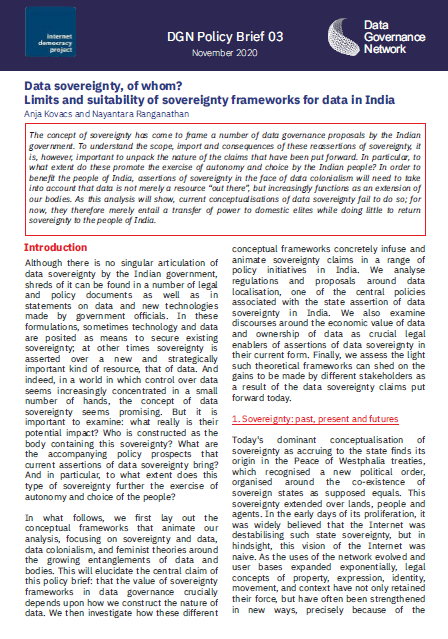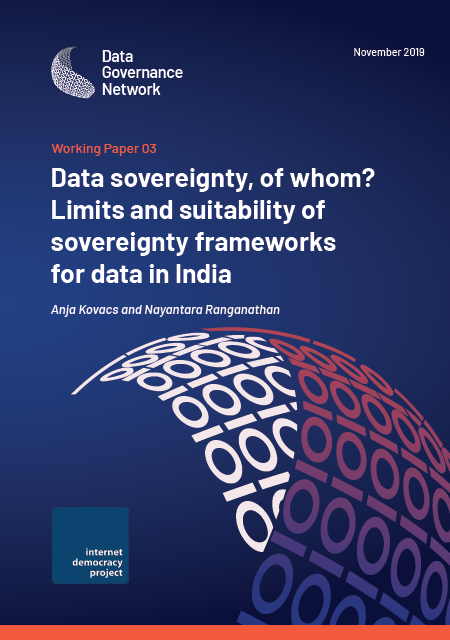Data sovereignty, of whom? Limits and suitability of sovereignty frameworks for data in India — A policy brief

The concept of sovereignty has come to frame a number of data governance proposals by the Indian government. To understand the scope, import and consequences of these reassertions of sovereignty, it is, however, important to unpack the nature of the claims that have been put forward. In particular, to what extent do these promote the exercise of autonomy and choice by the Indian people? In order to benefit the people of India, assertions of sovereignty in the face of data colonialism will need to take into account that data is not merely a resource “out there”, but increasingly functions as an extension of our bodies. As this analysis will show, current conceptualisations of data sovereignty fail to do so; for now, they therefore merely entail a transfer of power to domestic elites while doing little to return sovereignty to the people of India. This policy brief was first published by the Data Governance Network. More
